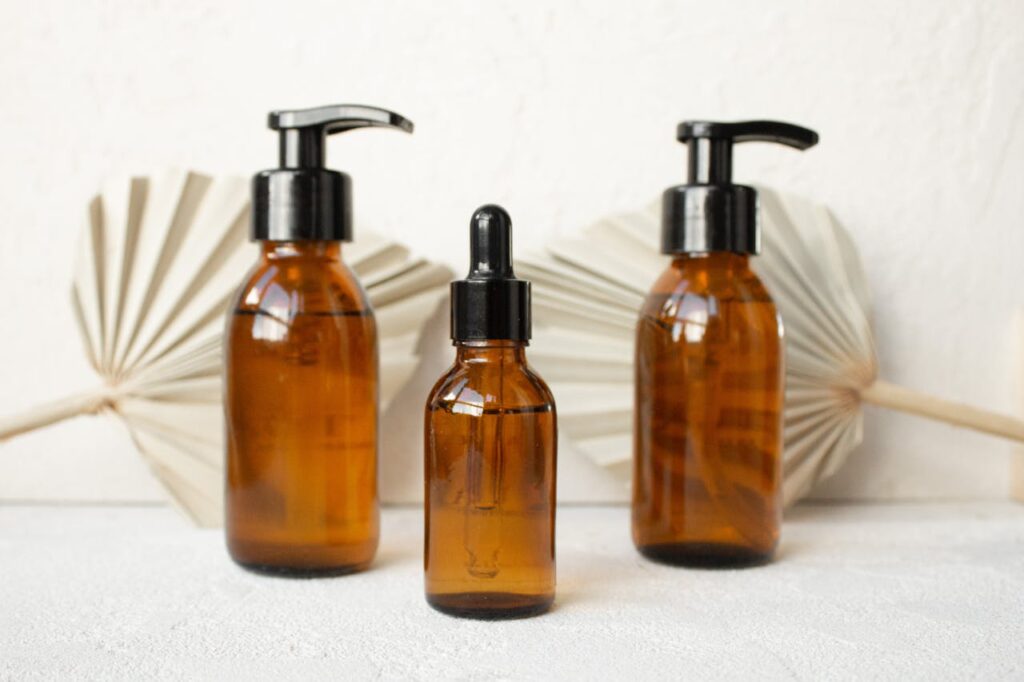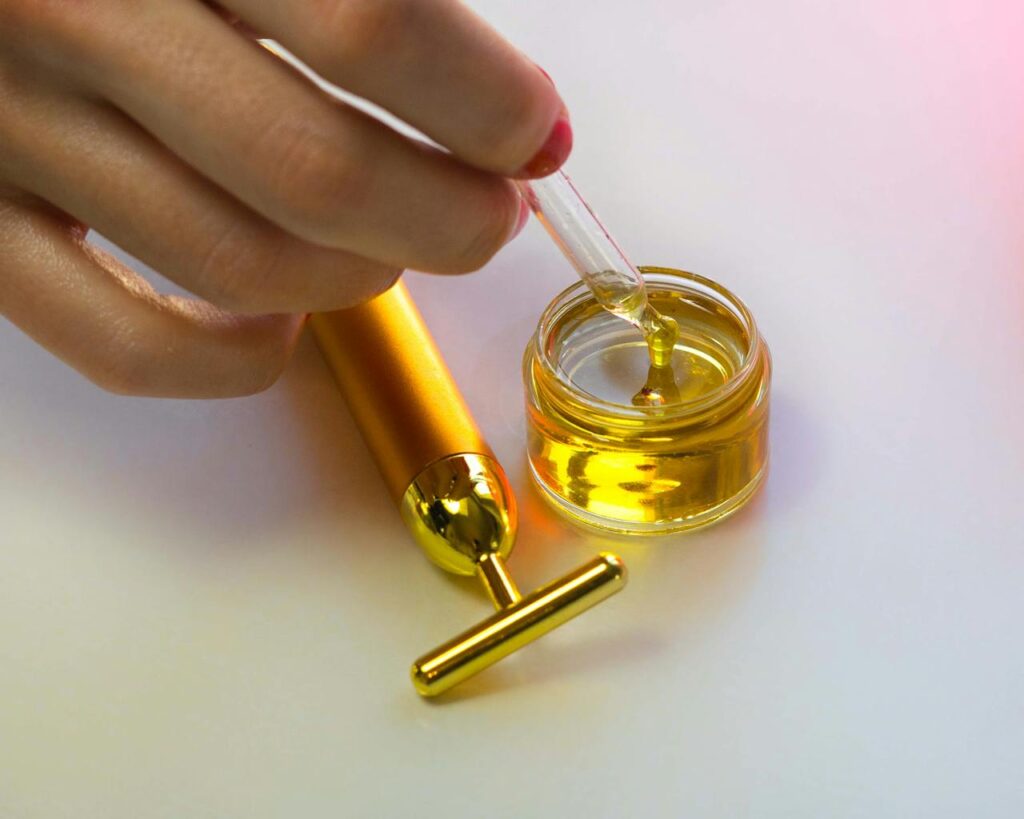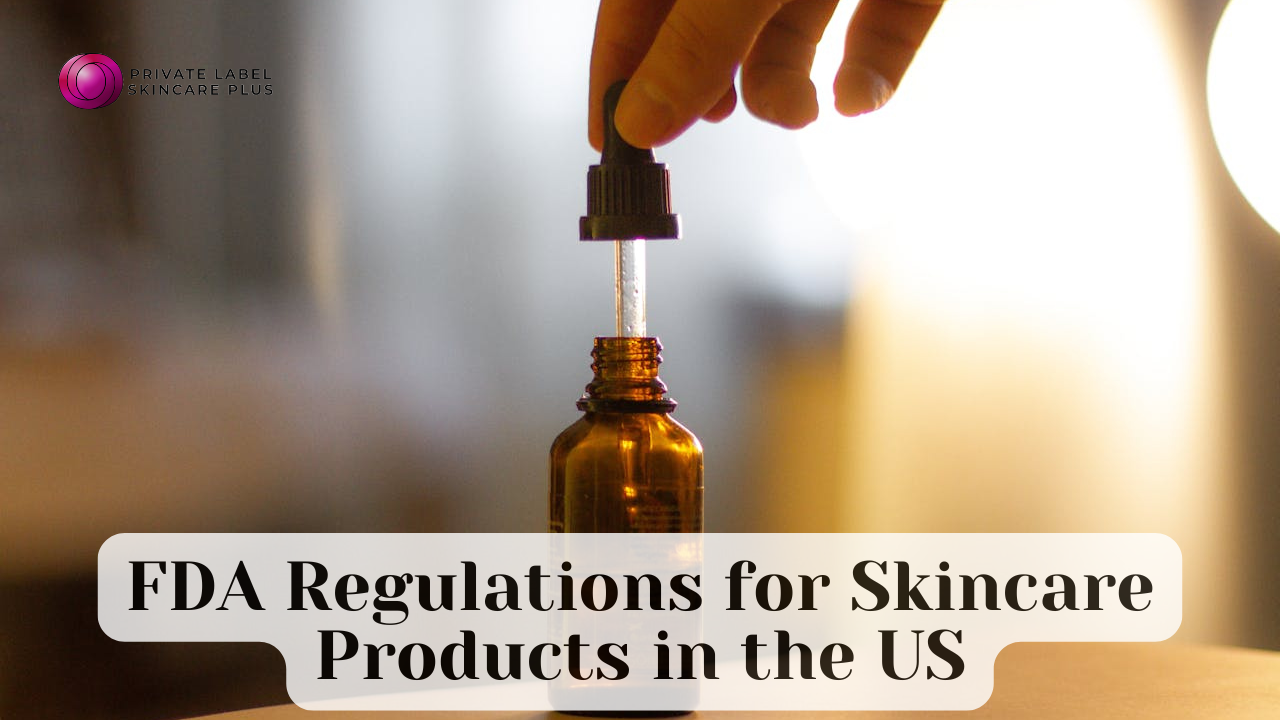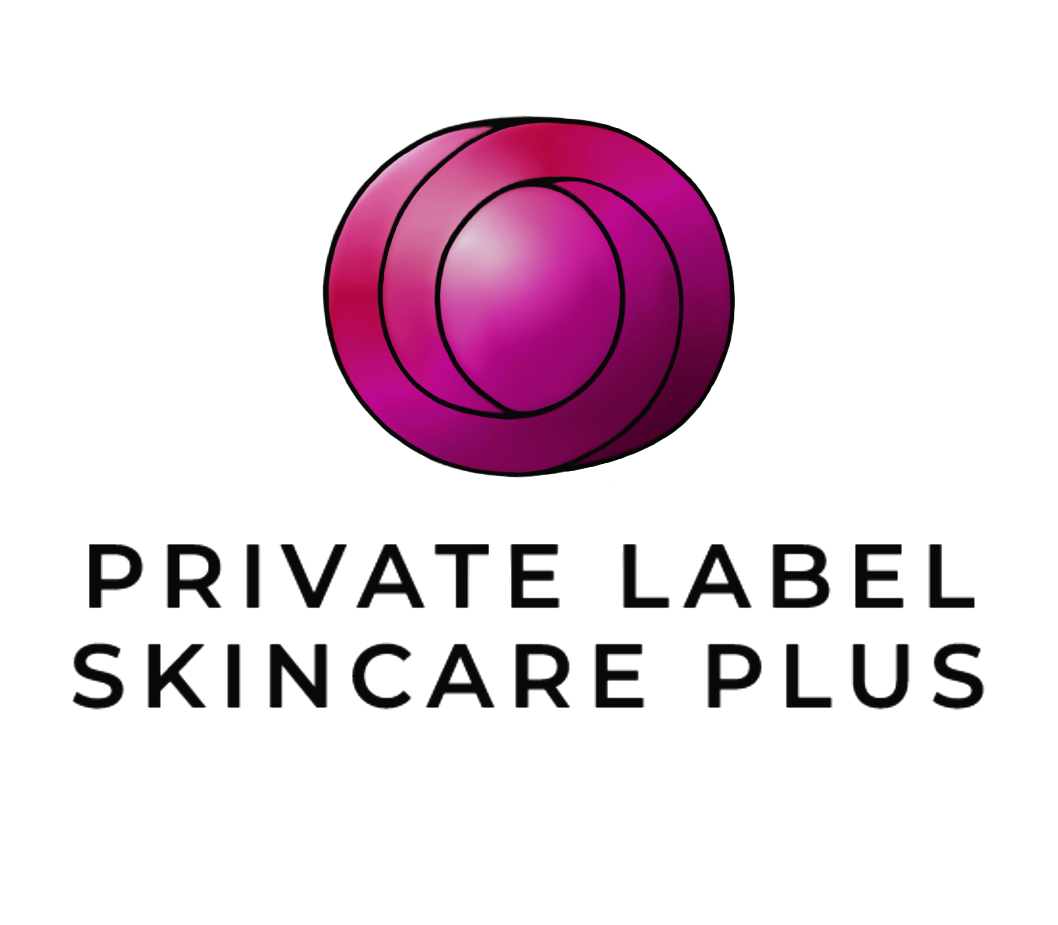The skincare industry is a dynamic and competitive market, with consumers increasingly prioritizing safety, transparency, and efficacy. For businesses entering this space, understanding FDA regulations is vital for ensuring compliance, avoiding legal pitfalls, and building consumer trust.
This guide is presented by Private Label Skincare Plus, your trusted partner in crafting FDA-compliant, high-quality skincare products. Whether you’re launching your first product or expanding your line, we ensure your brand is not only innovative but also meets all necessary legal and safety standards.
FDA’s Role in Skincare: What You Need to Know
The U.S. Food and Drug Administration (FDA) regulates skincare products under the Federal Food, Drug, and Cosmetic Act (FD&C Act) and the Fair Packaging and Labeling Act. These laws ensure products are safe for use and labeled truthfully.
Key responsibilities of the FDA
- Overseeing cosmetic product labeling to prevent misleading claims.
- Regulating ingredients to avoid harmful substances.
- Enforcing penalties for non-compliance, such as fines or product recalls.
What the FDA does not do
The FDA does not approve most cosmetic products before they reach the market. Instead, manufacturers are responsible for ensuring their products’ safety. For private-label brands, this means selecting a reliable manufacturing partner with expertise in compliance, like Private Label Skincare Plus.

Key Definitions: Cosmetic vs. Drug |
| Cosmetic Products: These include items like cleansers, moisturizers, and serums designed to cleanse, beautify, or enhance the appearance of the skin.
Drug Products: Skincare items intended to treat or prevent conditions, such as acne medications, sunscreens, or anti-fungal creams, fall under the drug category. These require adherence to strict testing and approval processes. Hybrid Products: Some products, like anti-aging serums with claims such as “reduces wrinkles,” may be classified as both cosmetics and drugs. Hybrid products require careful compliance with both sets of regulations. At Private Label Skincare Plus, we help you identify where your product falls and ensure it adheres to the correct standards. |
Labeling Requirements for Skincare Products
Labeling is one of the most scrutinized aspects of skincare compliance. The FDA mandates:
- Ingredient List: Include every ingredient in descending order of predominance by weight.
- Warnings: Certain products, like sunscreens, require specific warnings and usage instructions.
- Marketing Claims: Avoid unverified claims like “cures acne” unless the product is approved as a drug.
Prohibited Labeling Practices include:
- Misleading claims that overpromise results.
- Failing to disclose active ingredients or allergens.
Private Label Skincare Plus provides thorough label reviews to ensure your packaging is legally sound and consumer-friendly.
Who is Responsible for Product Safety?
Unlike drugs, cosmetics do not require FDA approval before hitting the shelves. However, manufacturers are legally responsible for:
- Ensuring products are safe for regular use.
- Conducting tests for skin irritation or sensitization.
- Properly labeling all products.
At Private Label Skincare Plus, we follow rigorous safety protocols, including ingredient vetting and voluntary registration with the FDA’s Voluntary Cosmetic Registration Program (VCRP) for added transparency.

Regulatory Considerations for Specific Skincare Products
FDA regulations for skincare products vary depending on various factors. Here are a few examples.
Sunscreens
- Classification: Sunscreens are considered drugs due to their UV protection claims.
- Requirements: Must comply with FDA monographs or obtain New Drug Approval.
- Testing: Stability, efficacy, and SPF ratings must be validated.
Acne Treatments
- Regulation: Over-the-counter (OTC) acne products must follow specific FDA guidelines.
- Labeling: Active ingredients like benzoyl peroxide or salicylic acid must be clearly stated.
Anti-Aging Products
- Hybrid Nature: Claims like “reduces fine lines” may classify these products as drugs.
- Compliance: Properly phrased claims and safe, effective formulations ensure compliance.
By choosing Private Label Skincare Plus, you gain access to custom formulation experts who help your brand navigate these nuanced regulations.
Common Regulatory Pitfalls and How to Avoid Them
- Unapproved Drug Claims: Claiming “treats eczema” without FDA drug approval can lead to legal issues. Solution: Use careful language and avoid making medical claims unless classified as a drug.
- Ingredient Violations: Using banned or restricted ingredients can result in recalls. Solution: Stay updated with FDA guidelines on ingredient lists.
- Adverse Event Mismanagement: Failing to document or report adverse events can damage your brand. Solution: Establish a robust reporting system.
Steps to ensure compliance:
1. Conduct an internal compliance audit
Evaluate formulations, labeling, and marketing claims for compliance gaps.
2. Partner with a trusted manufacturer
Working with a manufacturer like Private Label Skincare Plus ensures your products are compliant from inception.
3. Stay educated
Keep abreast of regulatory updates and new FDA rulings.
FAQs About FDA Regulations for Skincare Products
Q. Does the FDA approve skincare products?
No, the FDA does not approve most cosmetics. Manufacturers are responsible for ensuring safety and compliance before marketing.
Q. Can I make anti-aging claims for my skincare product?
Yes, but only cosmetic claims like “reduces the appearance of fine lines.” Medical claims like “stimulates collagen” may classify the product as a drug.
Q. Are private-label skincare products FDA-compliant?
They can be if manufactured by a reputable company like Private Label Skincare Plus, which ensures compliance with FDA regulations.
Q. How do I avoid unapproved drug claims?
Focus on cosmetic claims, avoid words like “treats” or “heals,” and ensure claims are substantiated with evidence.
Q. What happens if my product violates FDA regulations?
The FDA may issue warnings, fines, or initiate product recalls. Ensuring compliance from the start minimizes this risk.
Q. How do I label my skincare product correctly?
Include all ingredients, net quantity, and manufacturer information. Ensure claims are truthful and not misleading.
Q. Do all skincare products need safety testing?
Yes, manufacturers must ensure products are safe for regular use. Testing is especially important for new formulations.
Q. Why should I choose a private-label manufacturer?
Private-label manufacturers like Private Label Skincare Plus offer expertise in formulation, safety, and FDA compliance, streamlining the process of launching your brand.


